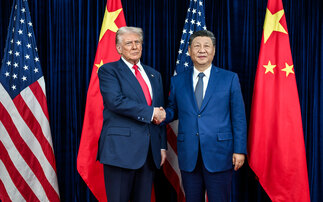With the yen below ¥108 to the dollar last Thursday, inflation at a measly 0.3% - far from the Bank of Japan (BoJ) and the Abe administration's 2% target - and companies such as Fast Retailing, owner of the Uniqlo brand, taking a large hit on earnings (due in part, though not only, to the yen strength), one can be forgiven for wondering if it is time to grab one's coat and head for the next party.
Indeed, both the government and the BoJ are in a bind. Intervening in the currency markets just before Japan hosts the G7 summit meeting this month would put Shinzo Abe in a difficult position, especially given the G20's commitment to not engage in competitive devaluation. Therefore, the BoJ will need to time policy changes carefully.
Despite this, however, further intervention is likely. The BoJ has form in this area, with repeated interventions since 1993 and a recent policy move instituting negative rates in support of Abenomics' reflation goal.
Abenomics at a crossroads: Where next for Japan?
There is still one clear area of Abenomics' success: corporate governance. Listed Japanese companies issued corporate governance reports for the first time, in accordance with 2015's new Corporate Governance Code: 66% of listed companies complied with 90% or more of the Code's principles, while 216 firms (or 12%) complied with all 731.
The Government Pension Investment Fund, the world's largest of its kind, on 29 January pledged to enhance medium to long-term investment returns to fulfil its stewardship obligations, including asking its fund managers to actively engage with investee companies.
Managements are starting to feel increased investor scrutiny and pressure. After years of ignoring investor concerns about underperforming parts of the business and poor governance, Seven & I, in many ways a star performer for investors with strong revenue and profit growth over the past five years, saw its autocratic chairman and CEO forced out recently by activist investors and his own board when he tried to arrange for his son to take over.
At last, governance structures and market pressures are beginning to work as they should in Japan. For investors in Japan with a bottom-up stock picking approach, keeping a wary eye on macro-economic turbulence will be vital.
Corinna Arnold is senior portfolio adviser for the RWC Japanese Focus fund
Bull Point
• Continued Abe and BoJ commitment to inflation goals and weaker currency
Bear Point
• Regional disputes sharpening as Abe pushes for further constitutional reforms













